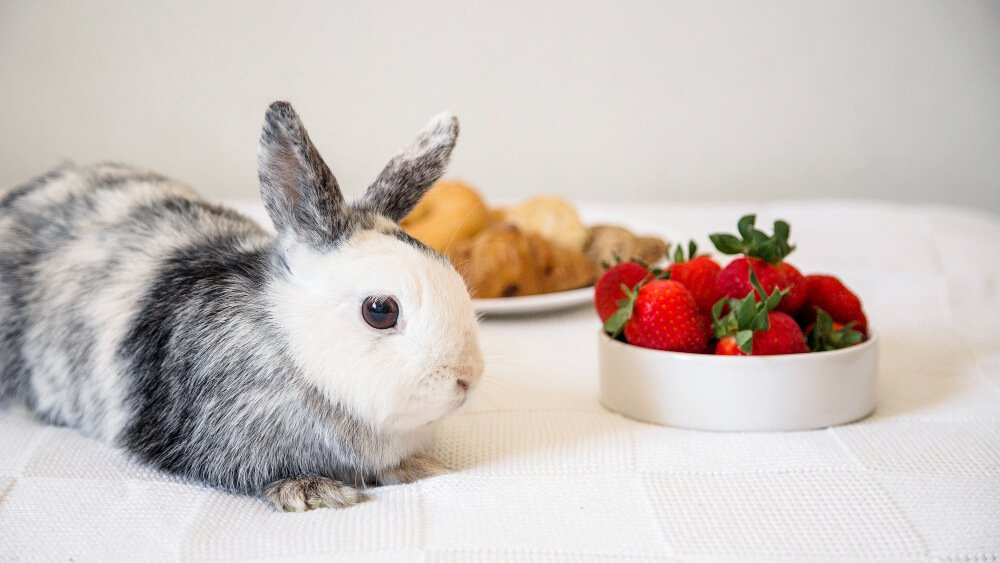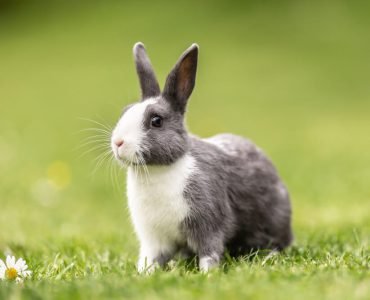Just like other animals, rabbits also need a more balanced diet to ensure they grow healthy with few cases of illness. However, it’s good to note rabbits have extremely delicate stomachs, and any slide change in diet or overfeeding certain types of food can be dangerous.
Rabbits have long been believed to be only carrot and lettuce consumers. However, timothy hay is the main meal that goes well with their stomach. This article will delve into a rabbit’s diet and what it needs to maintain healthy living.
What To Feed A Rabbit
Feed It Hay
The fundamental basis of a rabbit’s diet is long-stemmed hay, which should be the mainstay of their intake. Grass hay varieties, for instance, timothy, orchard grass, brome, and oat hay, are the preferred options to offer them. Securing the freshest hay and checking for any mold or dust presence, which might impair the rabbit’s health is critical.
As a protein-rich legume, Alfalfa hay is unsuitable for adult rabbits as it could cause overfeeding and various health issues. For juvenile rabbits, though, it serves as a nutrient source for their growing bodies. Nevertheless, it should be moderately administered as a reward, not as a primary source of sustenance.
Following these principles will help rabbit owners provide a balanced and healthy diet that meets their pets’ nutritional needs. It’s crucial to remember that rabbits are herbivores that graze and need a regular supply of fresh hay to thrive.
Occasionally Give It Treats
To maintain the health of your pet rabbit, it is essential to limit the frequency of treats. Steer clear of giving your rabbit carbohydrate-rich treats such as bread, crackers, pasta, pretzels, cookies, chips, or cereal. Although marketed for rabbits, many commercially-sold bunny treats, such as yogurt chips, are loaded with fat and sugar and should not be provided. Chocolate should never be given to rabbits as it is toxic to them.
Fruits are a better option for treats, but they should also be given in moderation because of the sugar content. It is recommended to purchase organic fruits that are free of pesticides. Like vegetables, fruits should be thoroughly washed before giving them to your pet rabbit. Some fruits that rabbits enjoy include strawberries, raspberries, bananas, pineapple, and apples without seeds.

Fresh Leafy Greens Are Also Good Options
Rabbits require fresh verdant plants to obtain the necessary nutrients for optimal health. Furthermore, rabbits are particularly partial to veggies; diversifying their gastronomic experiences can fuel their cognitive development. Experimenting with novel varieties of foliage occasionally can facilitate the discovery of your rabbit’s preferred palate.
The fresh verdure incorporated into your rabbit’s daily diet should account for roughly 10% of their sustenance. Your rabbit’s body mass should determine the optimal amount. Thus, a 5-pound rabbit should consume at most 2.5 cups of greens daily.
Although leafy greens such as romaine are safe for rabbits, it’s important to avoid feeding iceberg lettuce. It offers little nutritional value, and rabbits may choose to use it instead of healthier options such as hay.
Feed Your Bunny Pellets In Small Quantities
An average-sized adult rabbit (weighing 6 to 10 pounds) only necessitates one-fourth of a cup of pellets daily. If your rabbit is under five pounds, feed only one-eighth cup. It’s not vital to a bunny’s diet, so rabbits weighing 10 pounds don’t require more than a quarter of a cup.
Alfalfa pellets are appropriate for rabbits below one year of age. When feeding your young rabbit alfalfa pellets, feed grass hay instead of alfalfa. When searching for pellets, search for high-fiber content ones.
The higher, the better. Remember that many foods labeled for rabbits are unhealthy and can sometimes be dangerous, so always check the ingredients list. Do not purchase rabbit pellets with dried corn, nuts, and seeds added since those foods can harm rabbits.
Give Your Rabbit Plenty Of Water
To ensure rabbits have proper hydration, they should have constant access to fresh water. You should replace their water bowl or bottle with fresh water daily and monitor for any signs of dirt or mold. While tap water is sufficient, you can use purified water if preferred.
Rabbits need a substantial amount of water, comparable to that of a small dog. Rabbits drink around 1-2 cups of water daily. However, this could vary depending on the pregnancy status of the rabbit and its size. Additionally, rabbits drink more in hot weather or if they’re active.
If your rabbit needs to drink more water, remember that their diet may contain plenty of water, especially in fresh greens. If you’re concerned, consider the water content of their food as a factor.

Introducing New Foods To Your Rabbit’s Diet
Sudden dietary changes can easily disrupt your rabbits’ digestive systems, leading to blockages or excessive gas in their intestinal tract. Even if the new food you introduce is healthy, it can still cause significant digestive distress.
To prevent any digestive issues, it’s important to gradually introduce new foods by offering small amounts at first. Let’s say you are introducing your rabbit to cilantro. It’s good to start with the smallest portion possible, preferably one stalk for the first few days.
During this period, monitor your rabbit’s eating and bowel movements to ensure that its appetite hasn’t changed and its droppings are normal. If everything seems fine, you can slowly increase the amount of the new food. It’s essential to exercise caution when altering a rabbit’s diet, as some may have more delicate stomachs than others.
Avoid Giving Your Rabbit These Foods
Some types of food are not suitable for rabbits since they may make the rabbits sick; take a look at some of them below
- Rhubarb
- Mustard greens
- Yogurt
- Chocolate
- Legumes
- Cabbage
- Sugar
- Beet greens
- Pasta
- Iceberg lettuce
- Nuts
- Peas
- Corn or corn-cob treats
- Turnip greens
- Cauliflower
- Seeds
- Potatoes
- Cereal
- Beans
- Crackers
Conclusion
Our bodies need different types of nutrients every day to ensure that our meals have a balanced diet. Likewise, the rabbit’s body also works for them; they do not only need lettuce and carrots to survive. One important thing you might ignore as a pet owner is water.
Ensure that your bunny gets plenty of water to help it with digestion and help them stay active. If you follow this routine, your bunny will live a healthy life without frequent illness.





Add comment